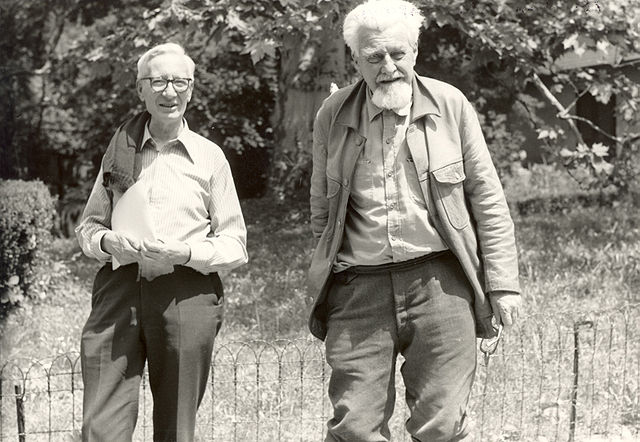Konrad Zacharias Lorenz was an Austrian zoologist, ethologist, and ornithologist. He shared the 1973 Nobel Prize in Physiology or Medicine with Nikolaas Tinbergen and Karl von Frisch. He is often regarded as one of the founders of modern ethology, the study of animal behavior. He developed an approach that began with an earlier generation, including his teacher Oskar Heinroth.
Lorenz in 1978
Lorenz in 1904 with his elder brother
Lorenz as a Soviet POW in 1944
With Nikolaas Tinbergen (left), 1978
Ethology is a branch of zoology that studies the behaviour of non-human animals. It has its scientific roots in the work of Charles Darwin and of American and German ornithologists of the late 19th and early 20th century, including Charles O. Whitman, Oskar Heinroth, and Wallace Craig. The modern discipline of ethology is generally considered to have begun during the 1930s with the work of the Dutch biologist Nikolaas Tinbergen and the Austrian biologists Konrad Lorenz and Karl von Frisch, the three winners of the 1973 Nobel Prize in Physiology or Medicine. Ethology combines laboratory and field science, with a strong relation to neuroanatomy, ecology, and evolutionary biology.
Great crested grebes perform a complex synchronised courtship display.
Male impalas fighting during the rut
Charles Darwin (1809–1882) explored the expression of emotions in animals.
Kelp gull chicks peck at red spot on mother's beak to stimulate regurgitating reflex








